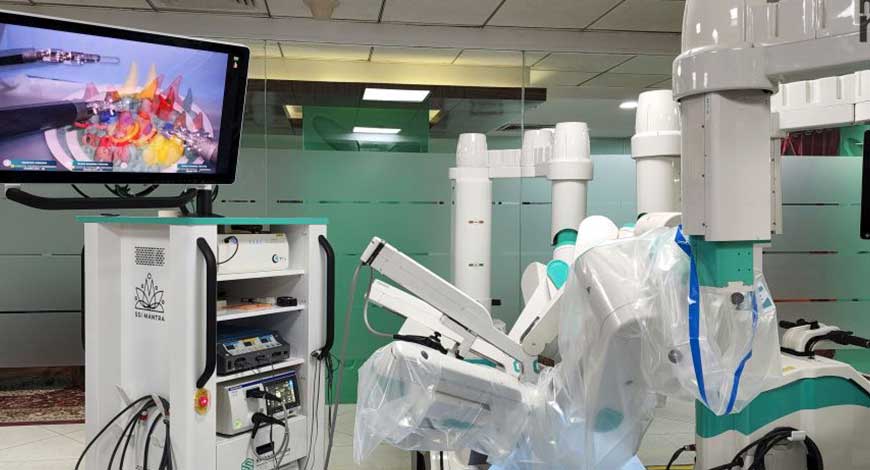Table of Contents
What is a bone marrow transplant?
Transplantation of bone marrow involves replacing destroyed or damaged bone marrow with healthy cells. It is also known as a stem cell transplant and often serves as the last line of defence against certain types of cancer, such as leukaemia and lymphoma. The bone marrow transplant cost in India is affordable at many hospitals. To understand better what a bone marrow transplant is, it’s important to understand how it works and why it’s necessary.
During the procedure, doctors collect healthy stem cells from either the recipient or an unrelated donor through apheresis. Then, the collected stem cells are injected into the patient via an IV line to help rebuild their immune system.
The types of bone marrow transplants:
Bone marrow transplants can be classified into three types: autologous, allogeneic, and umbilical cord blood transplant.
● An autologous bone marrow transplant uses cells from the patient’s body, harvested before receiving chemotherapy or radiation therapy. The patient’s healthy cells are stored in a cryopreserved state until they can be safely used to replace damaged or destroyed cells after complete treatment.
● An allogeneic bone marrow transplant uses stem cells donated by a volunteer donor or family member who matches the patient’s tissue type.
● A cord blood transplant involves the removal of stem cells from the umbilical cord of the baby and their freezing for future use. These cells have been arrested at an early stage of development, they require less gene matching than other approaches. In other words, this is an allogeneic transplant.
Who is a candidate for undergoing a bone marrow transplant?
Patients with certain diseases impairing bone marrow function may need a transplant to survive. The decision to receive a bone marrow transplant is not taken lightly; it requires both physical and emotional preparation for both the donor and recipient. For instance, it takes several months for doctors to find an appropriate match between donor and recipient before the transplant occurs.
Listed below are some causes that might necessitate a bone marrow transplant:
● Aplastic anaemia (a condition in which the bone marrow stops producing healthy blood cells).
● Cancer of white blood cells, such as leukaemia and lymphoma.
● Thalassemia (a condition in which the body produces an unnatural form of haemoglobin which results in decreased levels of functional haemoglobin, causing anaemia.)
● Sickle cell anaemia (the production of sickle-shaped red blood cells by the bone marrow, which is characterised by a short lifespan and easy breakability, resulting in anaemia.)
● Myeloma multiplex
● Congenital neutropenia (an illness that affects the body’s white blood cells and results in a reduction in the number of white blood cells, resulting in persistent infections among the patient.)
● The use of chemotherapy drugs: Chemotherapy drugs can suppress the bone marrow when used to treat certain cancers.
Understanding the procedure:
Once your doctor deems you ready, you will undergo the transplant. It is similar to receiving blood transfusions. There are two methods for collecting cells. A needle collects cell samples from both hip bones during a bone marrow harvest.
Leukapheresis
During leukapheresis, patients typically have their blood taken out of their veins with a needle and placed into a machine designed specifically for the procedure. The machine then uses centrifugation techniques to separate red and white blood cells from plasma before returning the remaining components into the patient’s bloodstream via an IV drip.
Pre-transplant checklist
The first step in preparing for a bone marrow transplant is to speak with your doctor about any medications and supplements that may need to be stopped before surgery. Your doctor will also guide when to take those medications or supplements after the transplant. Additionally, you must find out what tests must be performed before surgery, such as blood work and imaging studies.
Physical and mental preparation
The bone marrow transplant process can vary depending on the type of procedure being performed. Still, there are some general steps that all patients should know. From understanding the side effects of chemotherapy to finding ways to manage financial costs, having a full grasp on each aspect allows for greater peace of mind during treatment. It can also help reduce stress levels for the patient and their loved ones by providing more information about what they can expect along their journey.
Bone marrow transplant cost in India:
An allogeneic bone marrow transplant cost in India is approximately 12-15 lakhs, while an autologous transplant costs approximately 8-10 lakhs. Check with your insurance company to determine whether transplant costs are covered. The bone marrow transplant cost in India will be affected by several factors, including:
● Facilities and location of the hospital.
● Hospitalisation length.
● Utilisation of advanced technology and the expertise of doctors and their teams.
● Complications with your health.
● Rehabilitation and recovery.
● Medication prescribed after transplantation.
Conclusion:
Getting a bone marrow transplant in India is an important decision to make and should be taken seriously. All of the aspects mentioned above must be considered before undergoing the procedure. It is also essential to seek medical advice from experienced professionals and have a clear understanding of the process and its risks. It is important to ensure that you have all the necessary financial resources at your disposal for this procedure. Lastly, it is advisable to stay informed about the latest developments in the field and keep up with new treatments available.

